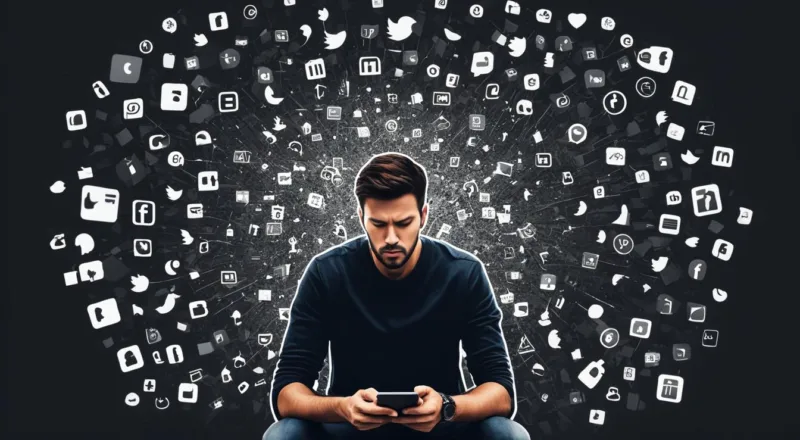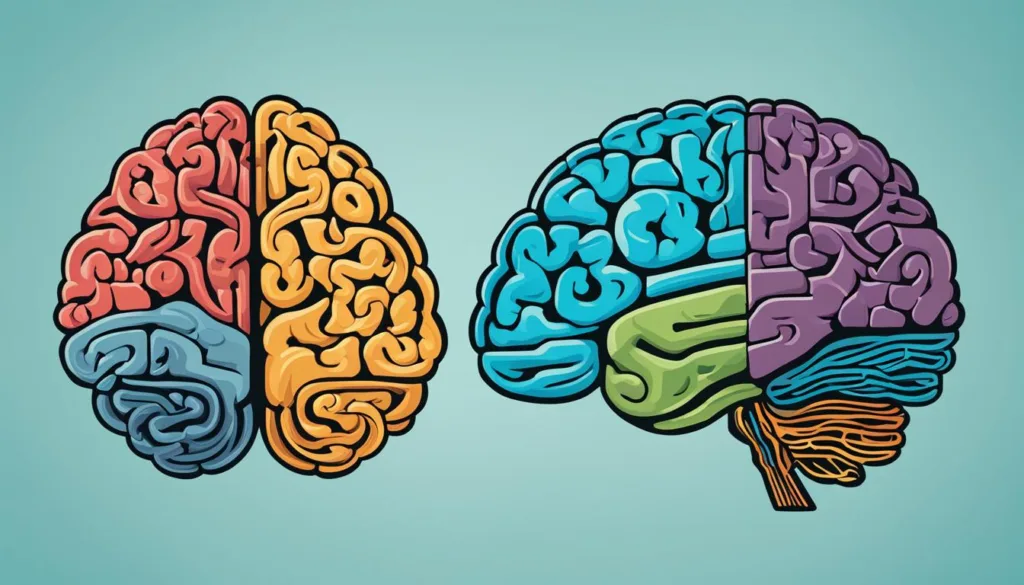Inside Out: A Comprehensive Social Media and Mental Health Essay on 5 Wellbeing Impacts
Unlock the complexities of the ‘Social Media and Mental Health Essay’ with this in-depth guide, examining 5 influential factors shaping overall wellbeing.
Introduction to ‘Social Media and Mental Health Essay’
Welcome to our comprehensive essay on the impact of social media on mental health. In this article, we will delve into the complexities of this relationship, addressing both the positive and negative effects that social media can have on our wellbeing.
Drawing upon research studies and insights from mental health service providers, we aim to offer a nuanced understanding of the subject.
Social media and mental health essay – social media is one of our parts of life.
Social media has undeniably become an integral part of our lives, shaping how we connect, communicate, and perceive ourselves.
While it provides opportunities for connection, sharing experiences, and accessing support and information, it also poses potential risks to our mental health.
From addiction to depression and anxiety, the influence of social media on mental wellbeing is a topic of significant concern.
Social media and Mental health essay – Key Takeaways:
- Social media can have both positive and negative impacts on mental health.
- Excessive use of social media can lead to feelings of loneliness, anxiety, and depression.
- Social media addiction is a growing concern that can adversely affect mental wellbeing.
- There is a connection between social media use and symptoms of depression and anxiety.
- Teenagers are particularly vulnerable to the mental health effects of social media.
The Influence of ‘Social Media and Mental Health Essay’
Numerous studies have shown that heavy use of social media can have both positive and negative effects on mental health.
On one hand, social media can lead to increased feelings of loneliness, anxiety, and depression, as users compare their lives to the idealized versions presented by others.
This constant exposure to carefully curated posts can create unrealistic expectations and a sense of inadequacy for individuals.

Social Media Can Provide Sense of Support
On the other hand, social media can also provide a sense of support, connection, and access to mental health resources. It enables individuals to connect with like-minded individuals, join supportive communities, and access information and resources related to mental well-being.
The nuanced impact of social media on mental well-being requires careful consideration. It is crucial to educate individuals on the potential negative effects of excessive social media use while also highlighting the benefits and positive aspects it can bring to mental health.
Negative Effects of ‘Social Media on Mental Health Essay’ |
Mental Health Benefits of ‘Social Media’ |
|---|---|
|
|
Social media and mental health essay -Setting Boundaries for Social Media Interaction
It is essential for individuals to be mindful of their social media usage and understand how it can impact their mental well-being. Setting boundaries, engaging in meaningful interactions, and practicing self-care are crucial in promoting positive use of social media for better mental health.
Next, we’ll explore the extensive research conducted on the relationship between social media and mental health.
Research on ‘Social Media and Mental Health Essay’
Researchers have conducted numerous studies to understand the relationship between social media use and mental health.
These studies have explored various factors such as the frequency and duration of social media use, the types of content consumed, and the psychological effects on individuals.
The research findings provide valuable insights into the potential risks and benefits of social media on mental health.
One study published in the Journal of Adolescent Health examined the impact of social media use on the mental health of teenagers.
Excessive Use of Social Media platform Can leads to Depression.
The researchers found that excessive use of social media was associated with higher levels of depressive symptoms and lower self-esteem in adolescents.
This suggests that the constant exposure to the carefully curated lives of others on social media may contribute to feelings of inadequacy and negative self-perception.
Another study conducted by the University of Pittsburgh’s Center for Research on Media, Technology, and Health focused on the association between social media use and sleep disturbances.
Spending more times on social media may experience Sleep Problems
The researchers found that individuals who spent more time on social media platforms were more likely to experience sleep problems such as difficulty falling asleep and disrupted sleep patterns.
These findings suggest that the excessive use of social media may disrupt sleep routines and negatively impact overall mental well-being.
Research findings provide valuable insights into the potential risks and benefits of social media on mental health.
Social media and mental health essay -social media Promotes Mental support – Another Study
In addition to the negative effects, there is also evidence of positive outcomes associated with social media use. A study published in the Journal of Medical Internet Research explored the role of social media in promoting mental health support.
The researchers found that individuals who engaged with mental health support groups on social media reported increased feelings of support and belonging.
This suggests that social media can provide a platform for individuals to connect with others who share similar experiences and find solace in virtual communities.
‘Social Media and Mental Health Essay’: Use social media Moderately for Better Health
Overall, research on social media and mental health highlights the complexity of this relationship. While excessive use of social media can have negative effects on mental health, such as increased levels of depression and sleep disturbances, it can also offer potential benefits, including access to online support networks.
Understanding the nuances of this relationship is essential for developing strategies to promote positive mental well-being in the digital age.
Social Media Addiction and Mental Health
Social media addiction is a pressing issue in today’s digital age. The constant use and reliance on social media platforms can have detrimental effects on individuals’ mental health, leading to a range of negative outcomes.
A study conducted by Harvard University revealed that excessive social media use is associated with decreased self-esteem.
The constant comparison to others’ highlights reels and the pressure to portray a perfect life can greatly impact one’s self-worth.
Additionally, the curated nature of social media can create a distorted reality, leading individuals to question their own accomplishments and well-being.
Excessive time on social media contribute to increased anxiety levels.
Moreover, spending excessive time on social media can contribute to increased anxiety levels. Endless scrolling and the fear of missing out (FOMO) can heighten feelings of unease and restlessness.
The constant exposure to an overwhelming amount of information and stimuli can overwhelm individuals and contribute to a heightened sense of anxiety.
Attention span is another aspect of mental health that can be negatively affected by social media addiction. Spending excessive time on social media can lead to diminished focus and concentration.
The constant need for instant gratification and the dopamine hit that comes with every notification can make it difficult to focus on tasks or engage in meaningful activities.
Maintaining Mental Well-being on social media
While social media addiction can pose risks to mental health, there are strategies individuals can employ to maintain their well-being while using these platforms:
- Set boundaries and allocate specific times for social media use to prevent excessive consumption.
- Practice digital detox by taking regular breaks from social media to recharge and refocus.
- Engage in activities that promote mindfulness and reduce screen time, such as meditation or hobbies.
- Seek support from friends, family, or mental health professionals if feelings of addiction or distress arise.
By implementing these strategies, individuals can take control of their social media usage and prioritize their mental well-being.
“Social media addiction is a growing concern that can negatively impact mental health. It is crucial that we are aware of the signs and take proactive steps to maintain our well-being in the digital world.” – Dr. Lisa Thompson, Psychiatrist
Effects of Social Media Addiction on Mental Health |
Strategies to Promote Mental Well-being on social media |
|---|---|
| Decreased self-esteem | Set boundaries and allocate specific times for social media use to prevent excessive consumption. |
| Increased anxiety levels | Practice digital detox by taking regular breaks from social media to recharge and refocus. |
| Reduced attention span | Engage in activities that promote mindfulness and reduce screen time, such as meditation or hobbies. |
| Seek support from friends, family, or mental health professionals if feelings of addiction or distress arise. |
The Role of social media in Depression and Anxiety
Research studies have highlighted the correlation between social media use and symptoms of depression and anxiety.
The ubiquitous presence of carefully curated posts and the constant comparison with peers can contribute to negative emotions and emotional distress.
Social media platforms often showcase idealized versions of reality, leading users to believe that others lead perfect lives. This can create a perception gap between one’s own life and the seemingly flawless lives depicted on social media.
Users may start feeling inadequate, unworthy, or unhappy when comparing themselves to these fabricated standards. The result is a detrimental impact on mental health, manifesting as symptoms of depression and anxiety.
Social Media and Mental Health Essay – Feelings of Fear, Sadness and Anxiety
Moreover, the constant exposure to distressing news, cyberbullying, and online harassment on social media can exacerbate feelings of fear, sadness, and anxiety.
Mastering Freedom: 7 Absolute Techniques for Overcoming Dependency Disorder Treatment and Achieving Guaranteed Results
Individuals experiencing these negative emotions might find it challenging to disconnect from social media, perpetuating a cycle of depressive and anxious thoughts.
To address the issue and navigate social media in a healthier way, it is important to recognize the harmful effects of excessive social media use on mental well-being.
Building resilience and adopting mindful practices can mitigate the impact of social media on depression and anxiety.
Remember, we can’t control everything we see on social media, but we can control how we engage with it. Focusing on self-care, setting boundaries, and seeking support when needed are crucial steps towards maintaining positive mental health in the digital age.
Strategies to Navigate social media and Promote Mental Well-being
-
Limit screen time:
Setting specific time limits for social media usage can help reduce exposure and the subsequent negative impact on mental health.
-
Curate a positive feed:
Unfollow accounts that trigger negative feelings and replace them with empowering and inspirational content that promotes positivity.
-
Take regular breaks:
Engaging in offline activities and unplugging from social media can provide much-needed rejuvenation for your mind and mental well-being.
-
Practice self-compassion:
Remember that social media only presents a highlight reel of people’s lives, and everyone has both ups and downs. Treat yourself with kindness, focus on self-care, and avoid comparing your journey to others.
-
Reach out for support:
If you find yourself struggling with depression or anxiety linked to social media use, it’s important to seek professional help or confide in a trusted friend or family member.
Social Media |
Depression |
Anxiety |
|---|---|---|
| Can contribute to feelings of inadequacy and low self-esteem due to constant exposure to picture-perfect lives of others. | The pressure to maintain an aesthetically pleasing profile can lead to anxiety and self-critical thoughts. | |
| Seeing others’ achievements and milestones can evoke a sense of comparison, triggering feelings of jealousy and depression. | Being part of multiple social groups on Facebook can lead to social anxiety and fear of missing out (FOMO). | |
| Exposure to negative news and constant arguments can contribute to heightened feelings of sadness and despair. | Reading anxious thoughts posted by others can be contagious and trigger anxiety in susceptible individuals. |
Social Media and Mental Health Essay – social media and Teenage Mental Health
Social media has become an integral part of teenagers’ lives, shaping their interactions and identities. However, concerns are rising about the impact of social media on teenage mental health.
Research studies have shown a clear link between social media use and mental health issues in teenagers, including increased rates of depression, anxiety, and self-harm behaviors.
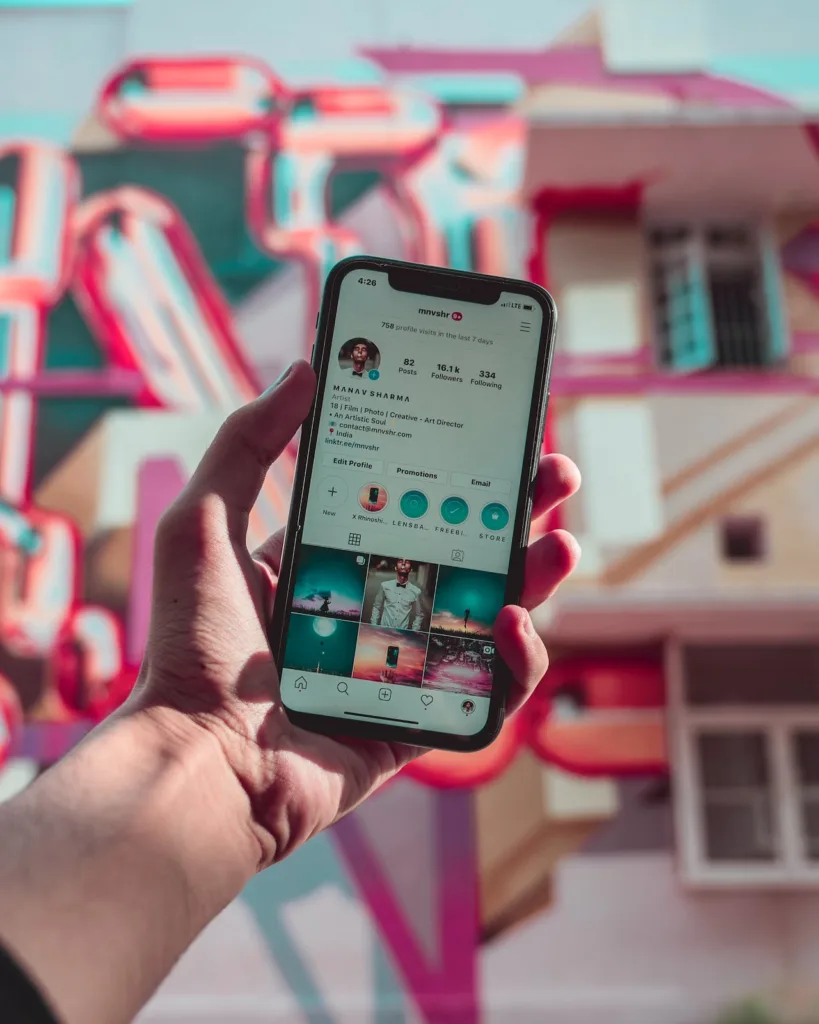
Emotional Distress
The constant exposure to carefully curated posts and peer comparison on social media platforms can lead to negative feelings and emotional distress among teenagers.
The pressure to fit unrealistic beauty standards, the fear of missing out, and cyberbullying are just some of the challenges teenagers face in the digital age.
Social Media and Mental Health Essay – Negative Impacts
The virtual world of social media can exacerbate these struggles, intensifying the negative impact on their mental well-being.
It is crucial for us to address the potential risks and provide support for teenagers in navigating social media and promoting positive mental health.
By engaging in open conversations about the effects of social media, we can equip teenagers with the knowledge and tools they need to protect their mental well-being.
Social Media and Mental Health Essay – Education Awareness
Education and awareness play a vital role in this process. Teenagers need to be informed about the potential harms of excessive social media use and be encouraged to develop healthy social media habits.
Teaching them how to recognize signs of cyberbullying, encouraging them to take breaks from social media, and promoting positive self-identity are essential steps in mitigating the negative effects on their mental health.
Supportive Resources
Several online resources and organizations are dedicated to promoting teenage mental health in the digital age. These platforms provide information on managing social media use, recognizing mental health challenges, and seeking help. Some examples include:
-
Teen Mental Health:
A website offering resources, tools, and educational materials for teenagers and parents to address mental health challenges.
-
Crisis Text Line:
A text-based support service available 24/7 for teenagers experiencing a crisis or in need of someone to talk to.
-
National Suicide Prevention Lifeline:
A helpline providing support for teenagers and individuals struggling with suicidal thoughts or mental health crises.
By leveraging these resources, we can guide teenagers towards maintaining a healthy digital balance and developing positive mental health habits.
“It is crucial to prioritize the mental well-being of teenagers in the digital age, providing them with the knowledge and support they need to navigate social media platforms safely and promote positive mental health.”
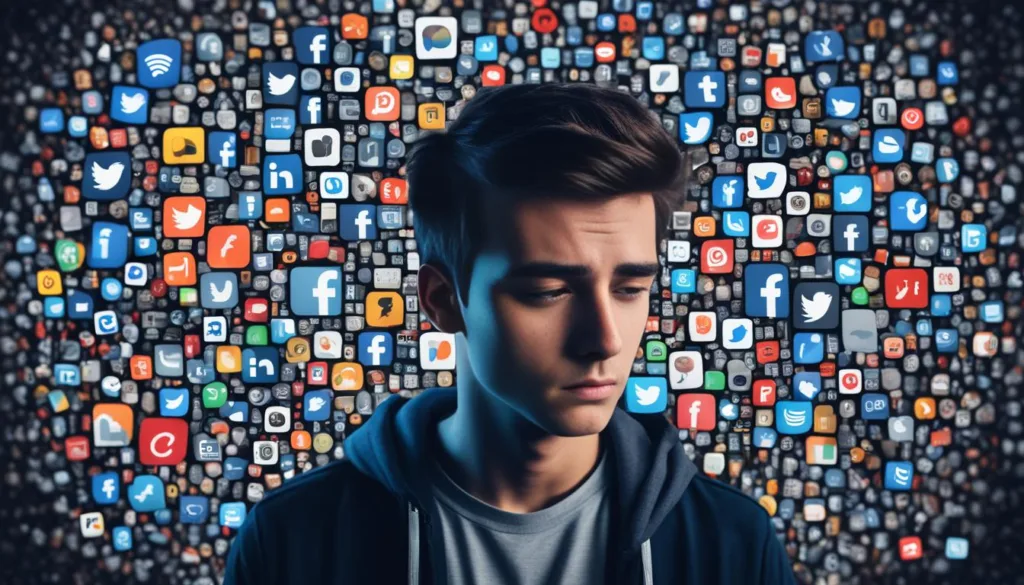
Teenage Mental Health Challenges |
Effects of social media |
|---|---|
| Increased rates of depression | Comparison to idealized versions of others’ lives. |
| Higher levels of anxiety | Fear of missing out (FOMO) |
| Risk of self-harm behaviors | Cyberbullying and online harassment |
| Low self-esteem | Unrealistic beauty standards |
Recognizing the negative impact of social media on teenage mental health is the first step towards fostering a healthier digital environment.
By providing support, education, and resources, we can empower teenagers to navigate the challenges of social media and prioritize their mental well-being.
The Connection Between social media and Self-Esteem
Social media platforms have become an integral part of our daily lives, providing opportunities for connection, self-expression, and information sharing.
However, the constant exposure to carefully curated posts and comparisons with others can have a significant impact on our self-esteem.
When scrolling through social media feeds, it’s easy to fall into the trap of comparing ourselves to the seemingly perfect lives of others.
We see images of beautifully presented meals, luxurious vacations, and flawless appearances, leading to feelings of inadequacy and low self-worth. This phenomenon, often referred to as “social media envy,” can have a detrimental effect on our self-esteem.
“Comparison is the thief of joy.” – Theodore Roosevelt
Social Media and Mental Health Essay – social media is Not a True Reflection of Reality Take Care
It’s important to remember that social media is not a true reflection of reality. People rarely share their failures, struggles, and insecurities online.
Instead, they showcase the highlight reel of their lives, carefully selecting the best moments to share with their followers. This curated version of reality can distort our perception of ourselves and create unrealistic expectations.
However, it’s not all doom and gloom. Social media, when used mindfully, can also contribute to positive mental health and self-esteem.
It provides a platform for self-expression and connection with like-minded individuals who share similar interests and experiences.
Communities that Empower and Support us.
Through social media, we can find communities that empower and support us, fostering a sense of belonging and acceptance.
Social media can also be a tool for promoting self-acceptance and body positivity. Many influencers and organizations use their platforms to challenge societal beauty standards and encourage individuals to embrace their unique qualities.
By following and engaging with these accounts, we can cultivate a more positive self-image and learn to appreciate ourselves as we are.
The Effects of social media on Self-Esteem
| Positive Effects | Negative Effects |
|---|---|
|
|
It’s essential to approach social media with a critical mindset and practice self-care in our online interactions. Taking regular breaks, setting boundaries, and prioritizing real-life connections are crucial for maintaining a healthy balance. Remember, social media is just one aspect of our lives, and our self-worth should not be defined by likes or followers.
The Impact of social media on Wellbeing
Social media plays a significant role in shaping our overall mental well-being. It has become a powerful medium for connection, enabling us to share our experiences, access support, and gather information.
By understanding the factors that contribute to positive mental well-being on social media, we can cultivate healthy relationships with these platforms and harness their potential benefits.
Social Connections the Key Advantages
One of the key advantages of social media is its ability to foster social connections. Through various platforms, we can connect with friends, family, and like-minded individuals, bridging the gaps of time and distance.
These connections provide opportunities for engagement, sharing ideas, and finding a sense of belonging. By building and maintaining supportive online networks, we can enhance our mental well-being and combat feelings of isolation.
“Social media allows us to extend our social circles beyond physical boundaries, providing a virtual space for interaction and support.” – Dr. Sarah Johnson, Psychologist
Social Media a Platform for Self-Expression
Moreover, social media serves as a platform for self-expression, enabling us to share our thoughts, achievements, and creativity with the world. Through the act of sharing, we can boost our self-esteem and sense of identity.
Positive feedback and validation from others can contribute to feelings of self-worth and empowerment. Additionally, social media can provide a supportive environment for individuals to express their emotions, struggles, and triumphs, fostering a sense of authenticity and connection.
Beyond personal connections, social media offers access to a wealth of information and resources related to mental health.
Dedicated Communities
Communities and organizations dedicated to mental well-being utilize these platforms to share educational content, strategies for self-care, and professional advice.
By actively engaging with credible sources, we can gain valuable insights, learn coping mechanisms, and stay informed about the latest research and treatment options.
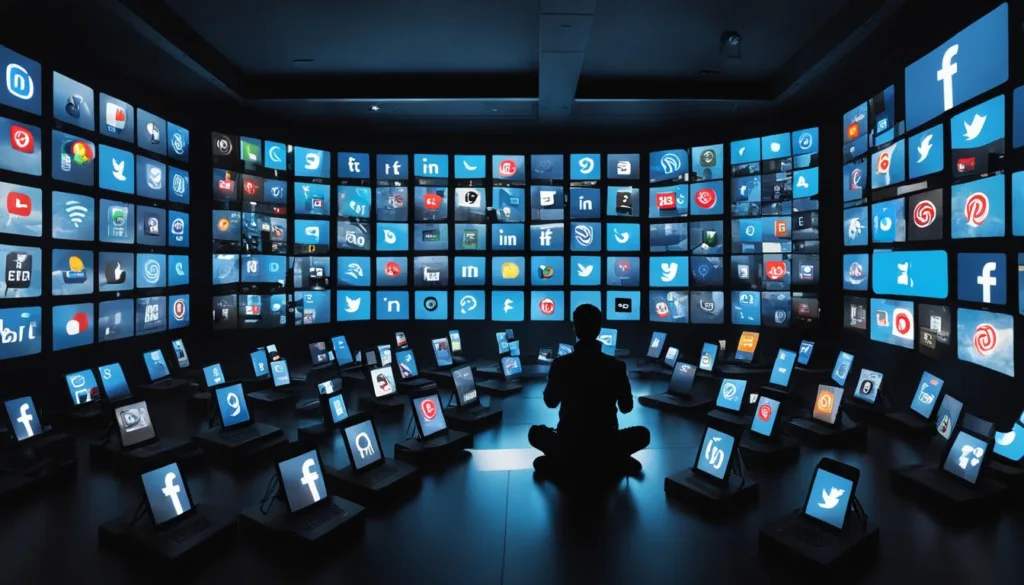
AI.

